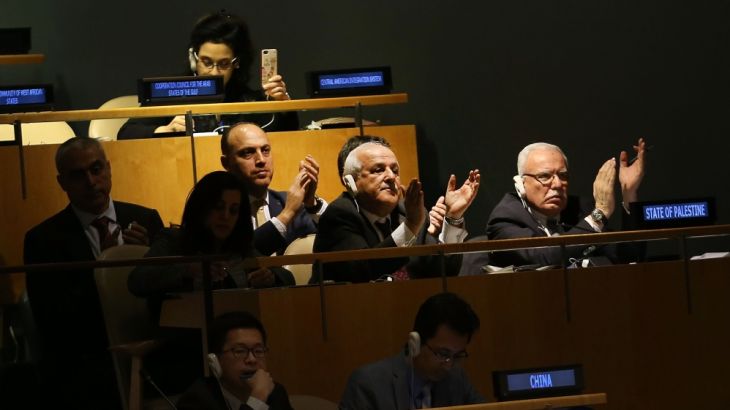
What will the Jerusalem vote mean for US diplomacy?
A stinging rebuke at the UN General Assembly may herald deeper problems for US foreign policy.
A resounding majority of United Nations member states defied unprecedented threats by the US to declare President Donald Trump’s recognition of Jerusalem as Israel’s capital “null and void”.
Trump and Nikki Haley, the US ambassador to the UN, both made threats before the Security Council vote – warning nations of the consequences they faced if they didn’t support the US move.
The non-binding resolution was approved at a UN General Assembly emergency meeting on Thursday with 128 votes in favour and nine against, while 35 countries abstained.
Turkey’s president reacted swiftly, saying the result proved that “the world is bigger than five and much bigger than one”.
Meanwhile, Palestine’s ambassador to the UN accused the US of using “unprecedented tactics … including blackmail and extortion.”
Beyond the immediate focus on Jerusalem, what will the vote’s long-term effect be on American diplomacy at the UN, in the Middle East and around the world?
And will Trump and Haley’s threats backfire, even if Washington does not follow through on its promise to cut aid to countries that voted against it?
Presenter: Hashem Ahelbarra
Guests:
Robert Hunter – former US ambassador to NATO
Simon Mabon – lecturer in International Relations and Government, Lancaster University
Phyllis Bennis – author of Calling the Shots: How Washington Dominates Today’s UN and Fellow at the Institute for Policy Studies